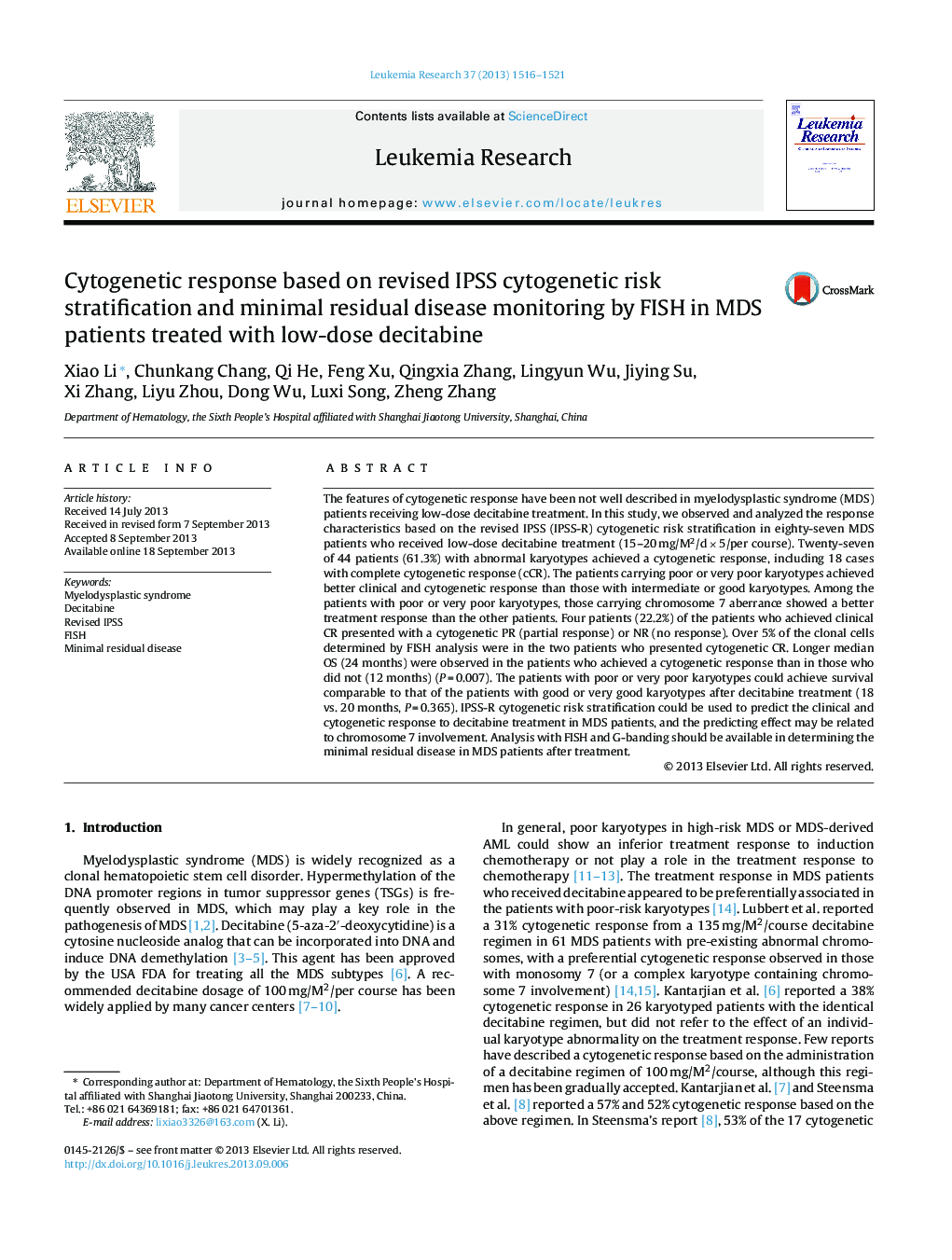| Article ID | Journal | Published Year | Pages | File Type |
|---|---|---|---|---|
| 10908901 | Leukemia Research | 2013 | 6 Pages |
Abstract
The features of cytogenetic response have been not well described in myelodysplastic syndrome (MDS) patients receiving low-dose decitabine treatment. In this study, we observed and analyzed the response characteristics based on the revised IPSS (IPSS-R) cytogenetic risk stratification in eighty-seven MDS patients who received low-dose decitabine treatment (15-20 mg/M2/d Ã 5/per course). Twenty-seven of 44 patients (61.3%) with abnormal karyotypes achieved a cytogenetic response, including 18 cases with complete cytogenetic response (cCR). The patients carrying poor or very poor karyotypes achieved better clinical and cytogenetic response than those with intermediate or good karyotypes. Among the patients with poor or very poor karyotypes, those carrying chromosome 7 aberrance showed a better treatment response than the other patients. Four patients (22.2%) of the patients who achieved clinical CR presented with a cytogenetic PR (partial response) or NR (no response). Over 5% of the clonal cells determined by FISH analysis were in the two patients who presented cytogenetic CR. Longer median OS (24 months) were observed in the patients who achieved a cytogenetic response than in those who did not (12 months) (P = 0.007). The patients with poor or very poor karyotypes could achieve survival comparable to that of the patients with good or very good karyotypes after decitabine treatment (18 vs. 20 months, P = 0.365). IPSS-R cytogenetic risk stratification could be used to predict the clinical and cytogenetic response to decitabine treatment in MDS patients, and the predicting effect may be related to chromosome 7 involvement. Analysis with FISH and G-banding should be available in determining the minimal residual disease in MDS patients after treatment.
Related Topics
Life Sciences
Biochemistry, Genetics and Molecular Biology
Cancer Research
Authors
Xiao Li, Chunkang Chang, Qi He, Feng Xu, Qingxia Zhang, Lingyun Wu, Jiying Su, Xi Zhang, Liyu Zhou, Dong Wu, Luxi Song, Zheng Zhang,
